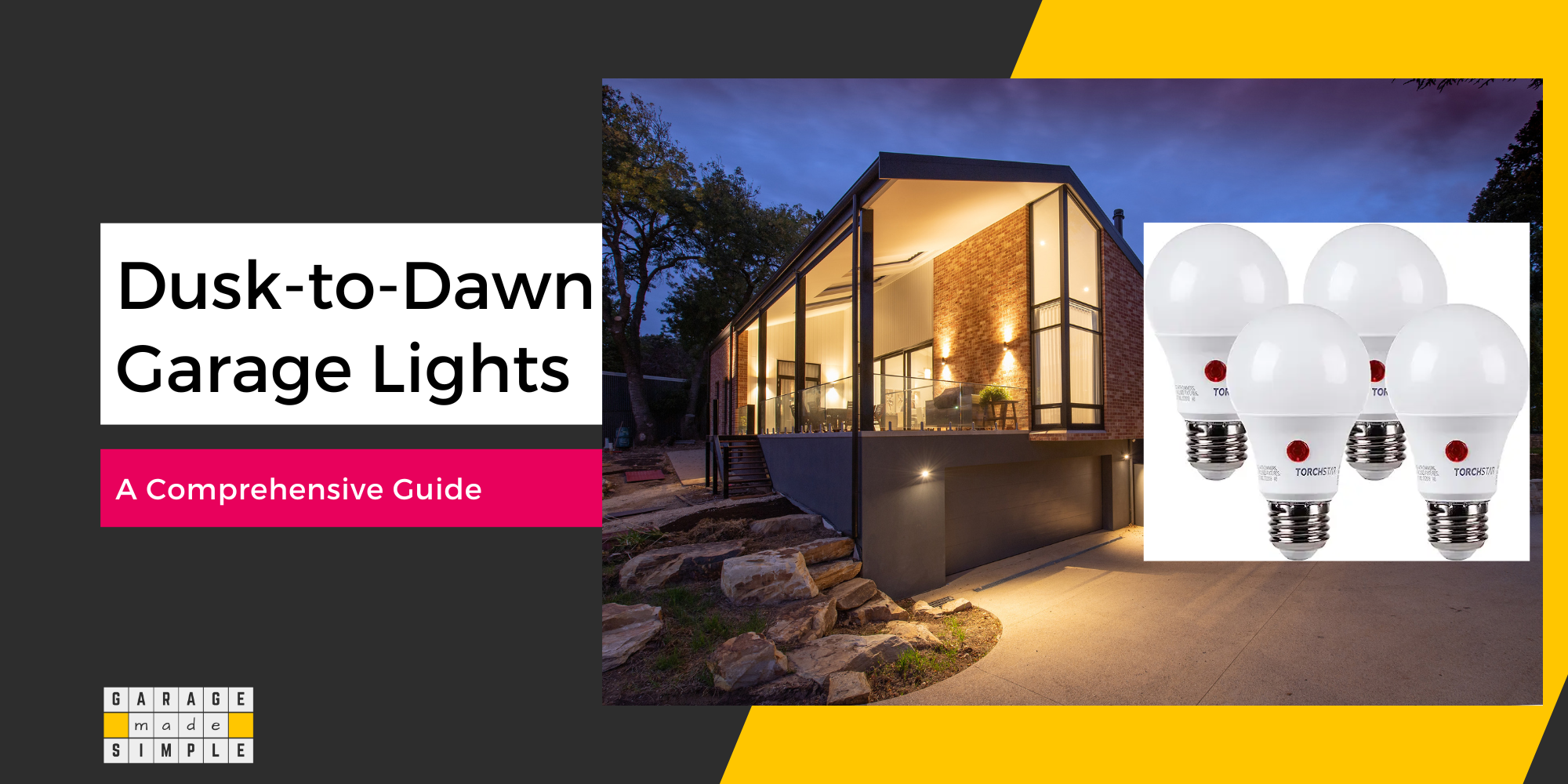5 Amazing Benefits of a Garage Climate Control System
garagemadesimple.com is a participant in the Amazon Services LLC Associates Program, an affiliate advertising program designed to provide a means for sites to earn advertising fees by advertising and linking to Amazon.com . The website is also an affiliate of a few other brands.
Key Takeaways: Garage Climate Control System
| BENEFITS | KEY ELEMENTS |
|---|---|
| 1. Increased Vehicle Life | 1. Insulation and Sealing |
| 2. Protection of Stored Items | 2. Garage Heating |
| 3. Enhanced Durability of Garage Infrastructure | 3. Garage Cooling |
| 4. Comfortable Living Space | 4. Garage Humidity Control |
| 5. Optimized Energy Efficiency | 5. Ventilation & Airflow |
| 6. Dust Control |
What is Garage Climate Control?
Garage climate control is usually ignored but the reality is that it benefits you in more ways than you can imagine!
For complete garage climate control you should be able to control the:
- Temperature
- Humidity
- Ventilation
- Dust
Some may even consider soundproofing & pest control as elements of garage climate control.
Benefits of Garage Climate Control
An investment in a garage climate control system yields tangible benefits that directly impact the longevity and condition of your vehicles and stored items.
Here are the 5 important benefits of investing in a proper garage climate control system:
1. Increased Vehicle Life
Garage climate control and maintaining stable temperatures, ultimately protects and increases the life of your vehicles and its key components. Extreme heat and cold can damage engines, tires, and batteries.
Specifically:
- Stable temperatures prevent engine fluid from thickening in winter and overheating in summer, ensuring optimal engine performance and longevity.
- Controlling humidity levels safeguards vehicles and metal tools from rust, corrosion and degradation.
- Stable temperatures also prolong the life of your car battery and prevents premature failure.
2. Protection of Stored Items
From tools and electronics to sentimental belongings, items stored in your garage are vulnerable to extreme temperatures and humidity levels.
Proper garage climate control prevents rust, decay, mold and pests, from damaging your possessions.
3. Enhanced Durability of Garage Infrastructure
Implementing a garage climate control system, not only preserves your vehicles and stored items but also extends the lifespan of the garage itself.
Protecting Garage Floors
High humidity in the garage increases the risks of crack propagation in the concrete garage floor. Furthermore, water or moisture penetration through those cracks can result in rebar corrosion and general weakening of the concrete.
Preserving Garage Doors
Garage climate control is helpful in prolonging the life of garage doors too. High humidity in the garage can cause steel or aluminum doors to rust or corrode.
In case you have an expensive real wood garage door, variations in temperature and humidity can cause it to warp or be attacked by pests, such as termites.
4. Comfortable Living Space
Garage climate control lets you use it as a multi-functional space. Your garage becomes an extension of your living space.

Whether you want to create a home gym, a workshop, a home office, a hobby center or an entertainment area, in your garage, maintaining comfortable temperature, humidity levels and ventilation are essential.
Invest in garage climate control system to expand the use of your garage as a space for relaxation, rejuvenation and even recreation, as well.
5. Optimized Energy Efficiency
Implementing a garage climate control system not only ensures a comfortable environment but also improves energy efficiency.
Strategic Insulation
Proper insulation acts as a barrier, preventing heat from escaping during colder months and blocking external heat during warmer seasons.
By insulating the garage walls and ceiling, you minimize the need for constant heating or cooling, reducing the workload on your HVAC system.
Insulation retains the desired temperature effectively, saving energy and lowering utility bills.
Smart Climate Control Systems
Modern garage climate control systems come equipped with advanced technologies such as programmable thermostats and occupancy sensors.
Such systems allow precise temperature regulation based on your specific needs and usage patterns. They automatically adjust the temperature when the garage is in use and revert to energy-saving modes when the space is unoccupied.
Such intelligent climate management ensures energy is used efficiently and electricity bills are kept low.
Environmentally Friendly Practices
Energy-efficient garage climate control is not just about saving money; it’s also about reducing your carbon footprint.
By consuming less energy, you contribute to a greener environment and sustainable living movement.
Key Elements of a Garage Climate Control System
Maintaining an optimal climate in your garage involves a comprehensive approach, encompassing key elements, such as, insulation & sealing, heating, cooling, dehumidification, ventilation, smart controls, etc.
1. Insulation and Sealing
Insulation
Temperature control in a garage is extremely important, regardless of the climate. Temperature variations between day & night, summer & winter, have an adverse impact on the life and performance of stored items, right from cars to golf clubs.
Insulation plays a passive, yet pivotal role in this process. Once installed, insulation reduces heat outflow during winters and heat inflow during summers, without consuming energy.
Garage door insulation commonly uses materials, such as Expanded Polystyrene Foam Panels (EPS), Fiberglass Wool Panels, and Reflective Foil Insulation Panels. These materials work by minimizing heat transfer through conduction and radiation.
Owens Corning Garage Door Insulation Kit
- 5 times better thermal performance
- 20% reduction in perceived noise level
- Installs in less than 1 hour (up to 9′ door)
- Flexible material resists denting
- Cleanable vinyl surface (w/mild detergent)
Garage floor insulation, often overlooked, can stop cold seeping in from the frozen ground during winter months. And then, of course, there is garage wall and ceiling insulation that are important for complete garage climate control
R-Value is a measure of resistance to heat flow of any barrier such as a garage door or wall. The higher the R-Value, the better the insulation.
Sealing
In addition to insulation, garage door weather stripping helps to seal heat flow. This is done using following types of seals around your Garage Door.
- Bottom Seal
- Bottom Threshold Seal
- Top & Side Weather Stripping Seals
- Door Panel Weather Stripping Seal
Seals are made of flexible materials such as rubber, PVC or silicone. These materials tend to become brittle with time due to exposure to sunlight and changes in temperature.
They may also be subject to mechanical damages. Do inspect them regularly and replace them when required.
2. Garage Heating
Just insulation is not enough, especially in freezing winters. Heating your garage becomes an essential element of the garage climate control system. A heated garage facilitates easier morning starts, as warm engine oil and lubricants flow more smoothly.
A heated garage also prevents condensation, which can be the cause of rusting of metal components and concrete floor degradation. Only a heated garage will let you use it as an extension of living space, for relaxation and recreation.
Some of your options are electric or propane garage heaters or an in-floor radiant heating system.
Fahrenheat FUH Electric Heater for Garage
- HEAVY DUTY HEATER: Heating Coverage: 400 sq ft
- CONTINUOUS COMFORT: Its powerful output warms up garages
- EASY TO USE: Includes ceiling mounting bracket for vertical or horizontal mounting.
- OUTPUT CONTROL: The high-level cutout automatically shuts off and on depending on garage temperature.
Electric garage heaters do not require to be vented, though the garage should be vented. If you use a gas fired garage heater the it is best to use one which has dedicated venting.
Not all gas fired garage heaters come with dedicated vents. It is safer to use a gas fired garage heater with a built-in vent. I recommend Ashley Hearth DVAG11L 11,000 BTU Direct Vent Propane Heater available at Amazon.
- 11,000 BTU heat input heats up to 375 sq. ft.
- Designed for use with liquid propane gas
- No complicated venting to purchase or install, complete kit is included (includes heat shield, vent pipe, air intake pipe, flashing, cap and connecting rod)
3. Garage Cooling
During the summer months, a garage, especially a detached garage could well become a furnace.
A cool garage is essential if you use your garage for storage of stuff like golf clubs, canoes, skis, surfboards etc. Many of these are made from composite materials that do not take kindly to heat & humidity.
While opening the garage door with a screen or using an exhaust fan can be effective in milder temperatures, if your area experiences over 90-degree weather, installing a garage air conditioner is a practical solution.
Code does not permit connecting the central home HVAC to the garage, so you must opt for either a window air conditioner or a mini-split air conditioner.
It is important to get the model which has sufficient cooling power for your needs. Typically an 18000 BTU should be fine for a 3 car garage.
Senville 18000 BTU Mini Split Air Conditioner
- ALEXA ENABLED MINI SPLIT AC/HEATING SYSTEM
- VERSATILE 4-IN-1 MINI SPLIT
- STYLISH & FUNCTIONAL MINI SPLIT AC
- COMPLETE INSTALLATION PACKAGE
- TRUST WORTHY 5-YEAR WARRANTY
Couple this with a fan to maintain airflow, if necessary. Proper ventilation helps prevent condensation, mold growth, and musty odors.
4. Garage Humidity Control
High humidity, more common in hot, coastal areas, not only makes you uncomfortable but also accelerates rusting and corrosion. High humidity in your garage is a threat to your car’s metal parts as well as the concrete floor.
High humidity levels can also damage items stored in the garage, as it hastens the corrosion process. Products made from engineered plastics may suffer from delamination due to a breakdown of adhesives.
To combat high humidity in the garage, you need to minimize the amount of water or moisture that enters. You need to be extra vigilant during rainy seasons. Ensure that any water pooling or flooding is dealt with immediately. Use of threshold seals and garage water diverters are also helpful.
A garage dehumidifier is essential, especially if your garage serves as a space for physical activities or stores damp sports & camping equipment.
80-Pint Energy Star Dehumidifier
- Coverage: Up to 5,500 Sq. Ft.
- Durability: Intelligent continuous dehumidification
- Sensors: Ultra-sensitive temperature and humidity sensors
- Efficiency: Energy Star-rated
- Filtration: 2-stage filtration system
5. Ventilation & Airflow
Good ventilation and airflow is almost as important in a garage as it is in the basement or other parts of your home. Poor ventilation can result in condensation, mustiness, and mold growth, especially during winters when temperature variations cause moisture buildup.
Controlled airflow minimizes condensation by maintaining consistent temperature between the floor and air. Good ventilation, essential for drying outdoor gear and dissipating odors, is vital in both insulated and uninsulated, attached, or detached garages.
Using fans, including ceiling, wall, table, or pedestal fans, helps maintain adequate airflow. Garage door screens let you open the garage door for enjoying fresh air without pests.
6. Dust Control
Dust in garages often originates from bare concrete floors. Concrete, a composite material, consists of cement, sand, gravel, and steel rebars for reinforcement.
Abrasion and weathering break down the top layer of concrete into fine particles of dust. Sealing the concrete floor with a penetrative sealer and applying an epoxy coating, effectively reduces dust by preventing cement disintegration.
Rust-Oleum Epoxy Shield Garage Floor Kit
- High solids solvents based epoxy coating ideal for garage floors
- Provides superior resistance to chemicals, wear and even standing water
- Covers up to 200 sq feet per gallon and is ready for heavy foot traffic in 1 day, vehicle ready in 4 days
- Ultimate adhesion and durability, withstands heavy foot and vehicle traffic
Thank you very much for reading the post. I do hope you found it informative and useful.











